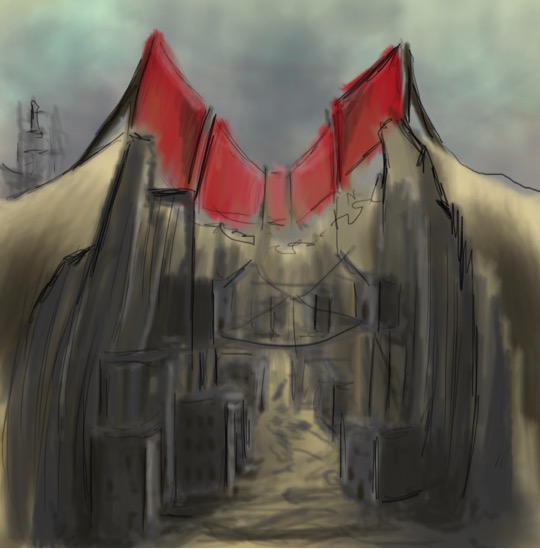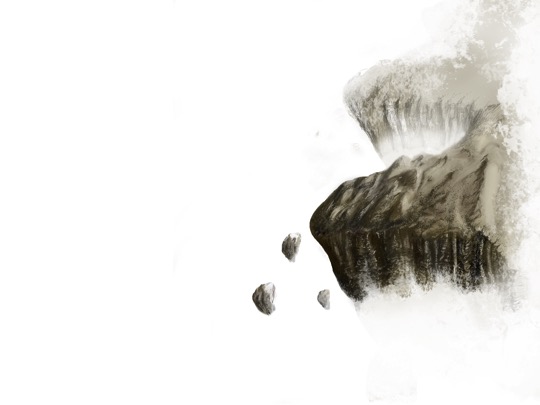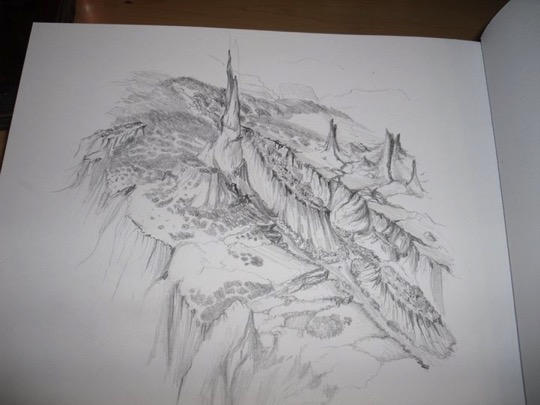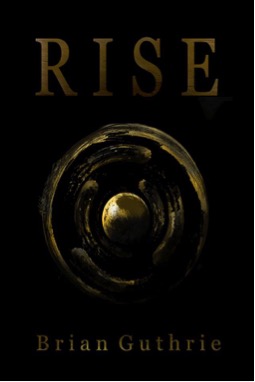Today, my World Builders guest is Brian Guthrie, serial author of science fiction and fantasy, including the science fiction novel Rise, currently funding on Inkshares.
 Based out of Germany, Brian Guthrie is a serial author of science fiction and fantasy. He is currently writing and publishing his Future Worlds series, Rise on Inkshares, slated for a September 2016 release, and Fall on Inkitt and Jukepop Serials. He also has plans for another science fiction novel, a bit of historical fiction, and many short stories set in the Future Worlds universe.
Based out of Germany, Brian Guthrie is a serial author of science fiction and fantasy. He is currently writing and publishing his Future Worlds series, Rise on Inkshares, slated for a September 2016 release, and Fall on Inkitt and Jukepop Serials. He also has plans for another science fiction novel, a bit of historical fiction, and many short stories set in the Future Worlds universe.
Here, now, are Brian’s insights on world building.
What aspects of the world do you have to figure out before you start a story? What do you allow to unfold as you write?
I need a sense of location although depending on the story this can be a loose sense as opposed to a precise one. That said, it varies for me whether or not I let the world dictate to me the story I tell or if I let the story dictate what the world needs to be. I’ve done it both ways. The key is to be flexible and let your story/world reveal themselves to you.
 How do you avoid excessive world building and balance it with the act of writing the story?
How do you avoid excessive world building and balance it with the act of writing the story?
This is a tricky balance as you need to have the setting in place to establish elements of the story (culture, economy, government, religion, history, etc.) These are greatly affected by the world you place your story in. Even things like common sayings will change based on your world. For example, in a world where wildlife hasn’t existed in centuries, would people still say things like “wild goose chase” or “on a rabbit trail” or “that’s a bear of a load”? No, you’d have to alter it. As an example, in my story, when a character was trying to convey the conversation had gotten sidetracked, instead of saying “we’re off on a rabbit trail” or something like that, she said “we’re off in a side tunnel” because tunnels and caves play a formative role in their culture. That said, you can’t spend all your time world building. So, I try to get the bare-bones of the world figured out, then start the story. As the need to explain or establish things come up, I take the time to figure them out.
What do you enjoy the most about world building?
The creation of something new and unique and then explaining it to people. Being able to get lost in that world you’ve built so much that people comment on the fact that you’re talking about it like it’s real is such a good feeling. To me, this world is real. The only way to truly tell the story is to immerse myself in it constantly. I need to be able to see it to be able to write about it. I also like the challenge of creating something new and fantastic that is also familiar enough to a reader for them to get lost in without constantly questioning things they shouldn’t be distracted by.
 Have you learned tips on world building from other authors in your genre? If so, what are they?
Have you learned tips on world building from other authors in your genre? If so, what are they?
Be consistent. Don’t establish a rule then break it later. And remember that while you can bend rules with things like magic or technology that you make up, you still need to establish rules about those things and limitations in order for them to be believable. Additionally, you must account for other established absolutes, like physics. Just because you alter something with magic doesn’t mean physics go away. In a world where everything is floating, you have to take into account things like gravity and aero-dynamics. If you have a world like the one in Rise where the planet has been ripped apart and all that remains of it are shell fragments of the crust orbiting a singularity core, how do you account for gravity? If you use technology to account for it, you need to make sure it’s believable and consistent while also giving it limitations. This allows the reader to accept the changes you’ve made and suspend their disbelief enough to not question things like “how are they being affected by gravity without a mass to generate it?” If you respect your audience and their intelligence, they will give you a lot of leeway to bend the rules of reality when you have to. Another trick I’ve picked up is the concept of “letting the readers imagination work for you, not against you.” What I mean by that is when I read my story I see one thing. When I imagine it, I often see it differently (say when I imagine a sequence to music). One feels like a book I’m reading, the other a movie I’m watching. The two will, out of necessity of the differences in the medium used, very obviously be different. The same goes for readers and their view of what I’m conveying. I dislike books where the author tries to dictate to me every little detail of a scene. Sometimes, it’s better to just let the reader see it how they imagine it. Give them just enough detail to follow the scene without distracting them from the narrative and move on. They will fill in the blanks for you.
How do you balance realism with magic or other world building elements that allow for departure from the ordinary?
As I said above, be consistent. If you build a machine that alters gravity, what are the second and third order effects of that? What are its limitations? Don’t just do something because you want to or you can because you’re the writer. Make sure what you’re doing pushes the narrative forward and doesn’t just tickle your fancy because you wanted to do it. Everything needs to make sense and feel like it belongs. And, after you finish writing that scene, step back and approach it with this question: where is the stupid in this scene? How do I remove or avoid it?
How do you deal with contradictions in your story that require large changes to your world? Have you run into this kind of difficult situation and if so how did you resolve it?
I find that if you limit the changes you make to things like physics and other laws of the known universe, you’ll find that certain contradictions are easily avoided. Then, when you do change something, make sure that you have an explanation for each change inside the established reality and then stick to it. For example, in Fantastic Four: Rise of the Silver Surfer, Sue looked through a telescope and stated that a planet was destroyed three days after the Surfer arrived. First, how did she deduce that from what she watched in a few short seconds? Second, could she have witnessed it at all when you take into account the time it would take for images from said destroyed world to have made it to Earth? Later in the movie, the group got into a flying vehicle and travelled to Russia from the US. Set aside the fact the vehicle could fly. The movie conveyed that they made that trip in a few short minutes. Any trip of that length would have taken more than half a day straight of traveling. Something like this should have been obvious to the writers and creators of the movie, but they didn’t take the time to examine what they were doing because they just wanted their scene how they had it and moved on. Don’t make that mistake. When I edit, I spend a lot of time trying to look at it from outside my perspective of knowledge so I can spot things like that.
 Describe your world and some of the considerations behind it that you feel give your stories a solid sense of realism:
Describe your world and some of the considerations behind it that you feel give your stories a solid sense of realism:
The setting for my world is a planet that was shattered long in the past. Most of the planetary material was consumed in the formation of what scientists in that world believe is a singularity core. The few fragments that remain orbit that core and what remains of humanity clings to those “shells” for survival. Now, step back and consider the implications. No planetary mass means no gravity well. So, to protect them from the dangers of space and to hold in an atmosphere, the world is surrounded by a shield that pulled all of the world’s water up to it as insulation. The singularity itself is surrounded by another shield that absorbs energy and protects the survivors from most of the effects of living that close to such a space phenomenon. Some, but not all. To survive on the shells without water, the humans that survived converted the citadels, originally built to control the weather and climate change, into water supplying machines as well as atmospheric regulators. They draw power from the shield around the core. These citadels generate an artificial gravity well of their own that exists on a flat plane. However it isn’t a one way effect; if you’re on the bottom you feel the same effect as on the top of a shell. In such a world, vegetation and animal life have all but vanished and people tend to live in large urban complexes or settlements built around water stations the survivors built to provide water across the shell surface. All of this is predicated on technology that is dependent on a power humanity discovered at the building block level of existence: a language that correlates to the table of elements and controls it. Using that language, humanity can alter the fabric of reality inasmuch as they can imagine and accept a new reality. So if you want a door, you form the elements in the wall into a door and force that new construct into reality. But if your mind can’t comprehend and accept the change, it won’t happen. To get around the flaws in human acceptance of such changes, machines were built that operated the same way. As you can see, I’ve changed a lot but tried to build it all around known familiar elements in the universe so you can both comprehend and accept the changes I’m making. Just like how the power, known as Coding, Altering, or Scripting depending on where you are from in that world, changes reality.
Be sure to check out Brian’s science fiction novel, Rise:
 On a world brought to the brink of destruction, life now clings to the shattered remains of the planet’s crust. These fragments are the Shells: fragile wastelands of desert and rock, protected from the cold of space by a water shield. In the struggle for survival, its people have depended on ancient technology, controlled by the omnipresent Network, to sustain the entire population. But the Network is breaking down, water is sparse, and a complete societal collapse is imminent. As the stakes become clear, the inhabitants of the Shells begin to turn on each other, and appear headed for all-out war.
On a world brought to the brink of destruction, life now clings to the shattered remains of the planet’s crust. These fragments are the Shells: fragile wastelands of desert and rock, protected from the cold of space by a water shield. In the struggle for survival, its people have depended on ancient technology, controlled by the omnipresent Network, to sustain the entire population. But the Network is breaking down, water is sparse, and a complete societal collapse is imminent. As the stakes become clear, the inhabitants of the Shells begin to turn on each other, and appear headed for all-out war.
Now the paths of several strangers will converge at the opportune moment. From a woman who seeks to protect her family as it’s ripped apart to a prison warden hiding from his past, this unlikely group has little in common—but together, they may hold the key to saving humanity from its worst enemy: itself.
And check out this brief excerpt of Rise:
I suppose this all started with paper. Real paper. I could not recall the last time I had seen a fresh batch of it. That close to the core, one rarely found supplies of this sort; they were hard to come by even for researchers like me. ‘Only the bare necessities for those sworn to protect.’ How many times had I had those words thrown in my face? Still, someone must have seen my request. How else had this package of crisp, white paper been delivered? The first thing I did was pull a piece free, hold it close to my nose, and inhale slowly. If I closed my eyes, the faint odor made me believe I was pressing my face close to a real tree standing before me, a soft breeze shifting my long hair around as it moved past. Well, I pictured what I thought was a tree. It was a pleasant dream.
And check out the reviews for Rise:
“My favourite writing is the serial adventure style… a bunch of installments that can be read at different times along the year. I think, to this end, Brian Guthrie is on to something here and I’m guessing we’re going to read a lot more from where this came from. This first novel, a little slow in the start (for my taste anyways), soon picked up pace. The characters are clearly complex and well thought out which gives the story a larger feel; a sense of immense scale, like the universe it is set against. There are some pretty intense dialogues along the way also, which for me, took a little getting used to but once I got the rhythm and pace of the author I found it refreshing to go beyond the usual back-and-forth of cheaper conversations found in many novels I’ve read recently. I would certainly recommend this book and look forward to much more.” A.G.
“Original and unexpected. Although my image of the … shell protected communities isn’t yet fully developed, the idea is intriguing. The excerpt made me think of some sort of underwater hive society. But a hive of people and people-turned-dragon? I’m interested.” S.T. Ranscht and Robert P. Beus
“Fans of the genre looking for a new world to explore, imagine and experience must read this. It goes so far beyond the normal, cut-and-paste setting of so many other science fiction epics that once you have a single image of the landscape and characters within, it will only leave you seeking to know this world that much more. A well-paced, vivid, inventive world is painted with great care as you read this complex science fiction epic. It is a setting that is measured and thought-provoking, with near-boundless possibilities. Rise is the beginning of a series with a strong future that can hold its own among the established icons of the genre and is a definite recommendation, not just as a work of science fiction, but as a soon-to-be paragon of popular fiction at large.” C. McElfresh
If you’re intrigued, please go over to Inkshares to find out more.
Inkshares is a crowdfunding publisher who chooses which books to publish based on whether enough readers have shown interest in them. Successful projects have been reviewed in the NYT, US Today, and Washington Post, and have been distributed to numerous bookstores including Indigo and Barnes & Noble.
And if you’d like to connect with Brian, you can do so in the following ways:
Website: www.guthron.com (author site)
Blog: www.nidfar.com (series website)
Twitter: @nidfar
Facebook: www.facebook.com/nidfar
Email: colberra “at” gmail “dot” com

